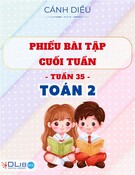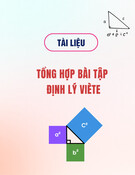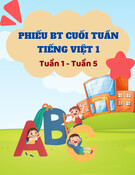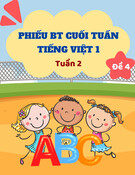
UNIT 10 COMMUNICATION (GIAO TI P)Ế
A- VOCABULARY
1. body language (n) / b di læŋw d /: ˈ ɒ ˈ ɡ ɪ ʒ ngôn ng c th , c chữ ơ ể ử ỉ
2. communicate (v) /k mju n ke t/: giao ti pəˈ ː ɪ ɪ ế
3. communication breakdown (n) /k mju n ke n bre kda n/: giao ti p không thành công, không hi u əˌ ː ɪˈ ɪʃ ˈ ɪ ʊ ế ể
nhau, ng ng tr giao ti pư ệ ế
4. communication channel (n) /k mju n ke n t ænl/: əˌ ː ɪˈ ɪʃ ˈ ʃ kênh giao ti pế
5. cultural difference (n) / k lt r l d fr ns/: ˈ ʌ ʃə ə ˈ ɪ ə khác bi t văn hoáệ
6. cyber world (n) / sa b w ld/: ˈ ɪ ə ɜː th gi i o, th gi i m ngế ớ ả ế ớ ạ
7. chat room (n) /t æt ru m/: ʃ ː phòng chat (trên m ng)ạ
8. face-to-face (adj, ad) /fe s t fe s/: ɪ ʊ ɪ tr c di n (trái nghĩa v i trên m ng)ự ệ ớ ạ
9. interact (v) / nt r ækt/: ˌɪ ə ˈ t ng tácươ
10. landline phone (n) / lændla n f n/ˈ ɪ əʊ đi n tho i bànệ ạ
11. language barrier (n) / læŋw d bæri /: rào c n ngôn ngˈ ɡ ɪ ʒ ˈ ə ả ữ
12. message board (n) / mes d b d/:ˈ ɪ ʒ ɔː di n đàn trên m ngễ ạ
13. multimedia (n) / m lti mi di /: ˌ ʌ ˈ ː ə đa ph ng ti nươ ệ
14. netiquette (n) / net ket/:ˈ ɪ phép l ch s khi giao ti p trên m ngị ự ế ạ
15. non-verbal language (n) /n n-v bl læŋw d /:ɒ ɜː ˈ ɡ ɪ ʒ ngôn ng không dùng l i nóữ ờ
16. smart phone (n) /sm t f n/: ɑː əʊ đi n tho i thông minhệ ạ
17. snail mail (n) /sne l me l/: ɪ ɪ th g i qua đng b u đi n, th ch mư ử ườ ư ệ ư ậ
18. social media (n) / s l mi di : ˈ əʊʃ ˈ ː ə m ng xã h iạ ộ
19. telepathy (n) /t lep i/: θəˈ ə th n giao cách c mầ ả
20. text (n, v) /tekst/: văn b n, tin nh n văn b nả ắ ả
21. verbal language (n) / v bl læŋw d /: ˈ ɜː ˈ ɡ ɪ ʒ ngôn ng dùng l i nóiữ ờ
22. video conference (n, v) / v di k nf r ns/: h i th o, h i h p qua m ng có hình nhˈ ɪ əʊ ˈ ɒ ə ə ộ ả ộ ọ ạ ả
B GRAMMAR
I-ÔN T P THÌ T NG LAI TI P DI N (FUTURE CONTINUOUS)Ậ ƯƠ Ế Ễ
1. Cách dùng
Cách dùng Ví dụ
Di n t hành đng s đang di n ra t i m tễ ả ộ ẽ ễ ạ ộ
th i đi m c th trong t ng lai.ờ ể ụ ể ươ Tonight at 11pm, we will be dancing at the party.
(T i nay lúc 11 gi , chúng tôi s đang nh y múa t i b aố ờ ẽ ả ạ ữ
ti cệ.)
Đ ho ch đnh cho nh ng vi c đc trôngể ạ ị ữ ệ ượ
th y đang x y ra trong t ng lai.ấ ả ươ You’ll recognize me when you get there. I’ll be wearing
jeans and a white T-shirt. I’ll besitting at a table at the
corner and reading a newspaper.
Hành đng có d đnh tr c trong t ng laiộ ự ị ướ ươ
g n.ầHe will be leaving in a few days.
Will you be going away this summer?
2. D ng th c c a thì t ng lai ti p di nạ ứ ủ ươ ế ễ
Th kh ng đnhể ẳ ị Th ph đnhể ủ ị
I
will be + V-ing
I
will not/won’t be + V-
ing
He/She/It/Danh t s ít/ừ ố
Danh t không đmừ ế
đcượ
He/She/It/Danh t s ít/ừ ố
Danh t không đmừ ế
đcượ
You/We/They/Danh từ
s nhi uố ề You/We/They/Danh từ
s nhi uố ề
Ví dụ:
At this time tomorrow, he will be doing his
homework. (Gi này ngày mai, anh y s đang làmờ ấ ẽ
bài t p v nhàậ ề .)
At this time next week, I will be going to France.
Ví dụ:
At 9pm tomorrow, they won’t be cleaning thei house.
(Lúc 9 gi t i mai, h s không đang lau d n nhàờ ố ọ ẽ ọ
đâu.)
At this time next month, she won’t be working for

(Gi này tu n sau, tôi s đang đi Phápờ ầ ẽ ) this company. (Gi này tháng sau, cô y s khôngờ ấ ẽ
đang làm vi c cho công ty này n aệ ữ .)
Th nghi v nể ấ Câu tr l i ng nả ờ ắ
Will
I
be + V-ing
Yes,
I
He/She/It/Danh
t s ít/ Danhừ ố
t không đmừ ế
đcượ
You/We/They/
Danh t sừ ố
nhi uề
will.
He/She/It/Danh
t s ít/ Danhừ ố
t không đmừ ế
đcượ
You/We/They/
Danh t sừ ố
nhi uề
No, won’t
Ví d :ụ
* Will she be singing at this time tomorrow? (Cô y s đang hát vào gi này ngày mai chấ ẽ ờ ứ?)
Yes, she will./No, she won’t.
* Will you be having dinner at 6pm tomorrow? (B n s đang ăn t i lúc 6 gi t i mai àạ ẽ ố ờ ố ?)
Yes, I will./No, I won’t.
D u hi u nh n bi tấ ệ ậ ế
Trong câu có các tr ng t ch th i gian nh : An hour from now (1 ti ng n a), tonight at … (t i nayạ ừ ỉ ờ ư ế ữ ố
lúc…gi ), at this time tomorrow (gi này ngày mai), at this time next week/month/year (gi nàyờ ờ ờ
tu n/tháng/năm sau)…ầ
II- VERBS + TO-INFINITIVES
-N u mu n theo sau m t đng t là m t hành đng khác, ta ph i dùng danh đng t (V-ing) ho cế ố ộ ộ ừ ộ ộ ả ộ ừ ặ
đng t nguyên th có “to” (to V).ộ ừ ể
-M t s đng t th ng đc theo sau b i đng t nguyên th có TO:ộ ố ộ ừ ườ ượ ở ộ ừ ể
want (mu nố) try (c g ngố ắ ) need (c nầ)
plan (d đnhự ị ) hope (hi v ngọ) promise (h aứ)
decide (quy t đnhế ị ) expect (mongm iỏ) learn (h cọ)
choose (ch nọ) forget (quên) refuse (t ch iừ ố )
agree (đng ýồ) seem (d ngnhườ ư) deserve (x ngđángứ)
help (giúp đỡ) manage (xoays đcở ượ ) afford (cóđ kh năngủ ả )
appear (t raỏ) arrange (thux pế) pretend (giả v )ờ

fail (th t b iấ ạ ) hesitate (l nglưỡ ự) prepare (chu nbẩ ị)
Ví d :ụ
- What do you want to do this evening? (T i nay b n mu n làm gìố ạ ố ?)
- Mai has decided to sell her car. (Mai đã quy t đnh bán xe h i c a cô yế ị ơ ủ ấ .)
- I can’t affordto buy it. (Tôi không đ kh năng đ mua nóủ ả ể .)
- They agreed to help us. (H đng ý giúp đ chúng tôiọ ồ ỡ .)
- She appeared to be tired. (Cô y xem ra trông m t m iấ ệ ỏ .)
- We arranged tomeet atten. (Chúng tôi thu x p g p nhau lúc 10 giế ặ ờ.)
* L U ÝƯ
- M t vài đng t nh love, hate, prefer có th theo sau b i c V-ing và to V mà không có s thayộ ộ ừ ư ể ở ả ự
đi v nghĩa.ổ ề
TEST 1 UNIT 10
I. Choose the word whose underlined part is pronounced differently from that of the others.
1. A. metal B. scatter C. package D. math
2. A. smell B. press C. melt D. refill
3. A. those B. clothes C. shopping D. envelope
4. A. down B. throw C. nowadays D. how
5. A. plants B. fields C. trees D. newspapers
II. Choose the words that have the different stress from the others.
1. A. polite B. penfriend C. shorthand D. breakdown
2. A. multimedia B. possibility C. telepathy D. interactive
3. A. battery B. conference C. oversleep D. barrier
4. A. landline B. touchscreen C. cyber D. replace
5. A. visible B. discussion C. digital D. separate
III. Choose the word or phrase that best completes each unfinished sentence below.
1. Every few weeks new satellites into orbit.
A. are put B. is put C. are putted D. is putted
2. You ought to give up smoking because it is harmful to your health.
A. should B. could C. may D. am going to
3. Try to the amount of fat in your diet.
A. reuse B. refill C. reduce D. recycle
4. It is to park in the center of Newtown.
A. impossible B. impossibility C. impossibilities D. impossibly
5. I am delighted you passed your exam.
A. that B. to C. in order to D. so that
6. We will begin a brief discussion of the problems.
A. from B. with C. at D. on
7. Tree leaves to wrap things.
A. should used B. should been used
C. should be used D. should be use
8. is a wonderful natural fertilizer.
A. Compost B. Plastic C. Envelope D. Garbage
9. Glass is broken up, melted and made into new .
A. silverware B. hardware C. ironware D. glassware
10. Is the rubbish every day?
A. collect B. collecting C. collected D. be collected
11. In 1876, the telephone first introduced by Bell and Watson.
A. was B. is C. has been D. had been
12. It’s important wildlife in the area.

A. to conserve B. conserving C. conservation D. conserve
13. Japan 40% of its waste every year.
A. reuses B. recycles C. refill D. broken
14. We were delighted your letter yesterday.
A. to get B. got C. getting D. get
15. Sooner or later a satellite by a large piece of rubbish.
A. will destroy B. will destroyed
C. will be destroyed D. will been destroyed
16. Let’s play tennis instead of television.
A. watch B. watching C. watches D. to watch
17. Everything depends on what you mean the word “free”.
A. about B. for C. of D. by
18. We should use bags instead of plastic bags.
A. cloth B. clothe C. clothed D. clothing
19. Beer for breakfast in England years ago.
A. used be drunk B. used to be drunk
C. used to drunk D. used to be drank
20. I some rice on the floor of the chicken coop.
A. raised B. grew C. threw away D. scattered
IV. Complete the sentences, using the correct form of the words in brackets.
1. Helen cannot talk to John because his nickname is . (visible)
2. High- speed Internet provides me with videos. (interact)
3. With telegraphy, the information will be sent . (immediate)
4. She used signs to tell me that we were late. (direct)
5. Paul and missed some phone calls yesterday morning. (sleep)
6. The secretary put Thomas through the manager’s landline . (instant)
7. The mute usually communicate with each other. (non- verbal)
8. I think Janet is not because of her unfriendliness. (communicate)
V. Read the passage and complete the sentences.
One of the main sources for the spreading of news and events through out the world is the newspaper.
The purpose of newspaper is to inform the public of political, social, economic and entertainment
happenings, among other things. Generally, there are three types of newspapers. Daily newspapers publish at
least one edition every weekday. Most dailies also have a weekend edition. Daily newspapers often have
sections for news, sports, arts, and entertainment, business, and classified advertising. Weekly newspapers
print once a week and cover news of interest to readers in a smaller area than that of a daily paper. They
focus on local happenings rather than national or international events. Special-interest newspapers may
publish daily, weekly, monthly, or even less frequently. They generally disseminate news of interest to a
particular group of readers of feature news about a specific topic.
Thanks to the development of Internet, we can now get access to electronic newspapers. To some extent,
e-newspapers are cheap, up-to-date, and convenient for most readers in the world.
1. The purpose of newspapers is to..................................................................................................
.....................................................................................................................................................
2. There are three types of newspaper. They are ............................................................................
.....................................................................................................................................................
3. Daily newspapers often have sections for ...................................................................................
.....................................................................................................................................................
4. Weekly newspapers focus on ......................................................................................................
.....................................................................................................................................................
5. Special-interest newspapers cover news of interest to ................................................................
.....................................................................................................................................................
6. Electronic newspapers are ..........................................................................................................

.....................................................................................................................................................
VI. Read the passage and answer the questions.
THE POSTAGE STAMP
Before the invention of the postage stamp, it was difficult to send a letter to another country. The sender
paid for the letter to travel in his or her own country. Then the person in the other country paid for that part
of the trip. If a letter crossed several countries, the problem was worse.
Rowland Hill, a British teacher, had the idea of the postage stamp with gum on the back. The British post
office made the first stamps in 1840. They were the Penny Black and the Twopence Blue. A person bought a
stamp and put it on a letter, the post office delivered the letter. When people received letters, they didn’t
have to pay anything. The letters was prepaid.
Postage stamps became popular in Great Britain immediately. Other countries started making their own
postage stamps very quickly.
There were still problems with international mail. Some countries did not want accept letter with stamps
from another countries. Finally, in 1874, a German organized the Universal Postal System. Each country in
the UPS agreed to accept letter with prepaid postage from the other members. Today the offices of the U PS
are in Switzerland. Almost every country in the world is a member of this organization. It takes care of any
international mail problems.
Today post offices in every country sell beautiful stamps. Collecting stamps is one of the most popular
hobbies in the world, and every stamp collector knows about the Penny Black and the Twopence Blue.
Questions
1. Why was it difficult to send a letter to another country before the invention of the postage stamp?
.....................................................................................................................................................
.....................................................................................................................................................
2. Why were the postage stamps popular?
.....................................................................................................................................................
.....................................................................................................................................................
3. How did other countries react with the postage stamps?
.....................................................................................................................................................
4. What does the Universal Postal System do today?
.....................................................................................................................................................
5. Why do stamp collectors know about the Penny Black?
.....................................................................................................................................................
VII. Choose the word (A, B, C, or D) that best fits each of the blank spaces.
Dear Sir or Madam,
We are in Class B, Year 8 at Stonehouse School. Every year our class goes (1) an adventure
holiday. This year we would like (2) your center. We are planning (3)
away for the first week in May, arriving on Friday 2 May. There will be 15 boys and 15 girls in our party,
and two teachers. We are (4) in sailing, rock climbing, canoeing, and map-reading. Can you send us
information about your center?
We look forward (5) from you.
Yours faithfully,
Class B
1. A. in B. at C. aver D. on
2. A. attend B. attending C. to attend D. to attending
3. A. go B. to go C. going D. to going
4. A. interested B. interesting C. bored D. boring
5. A. hear B. to hear C. hearing D. to hearing
VIII. Choose the word or phrase among A, B, C or D that best fits the blank space in the following
passage.
TELEPATHY: MIND TO MIND COMMUNICATION



![Tài liệu tham khảo Tiếng Anh lớp 8 [mới nhất/hay nhất/chuẩn nhất]](https://cdn.tailieu.vn/images/document/thumbnail/2025/20250806/anhvan.knndl.htc@gmail.com/135x160/54311754535084.jpg)










![Phiếu bài tập cuối tuần Tiếng Việt 1 tuần 2 đề 2: [Hướng dẫn chi tiết]](https://cdn.tailieu.vn/images/document/thumbnail/2025/20250728/thanhha01/135x160/42951755577464.jpg)

